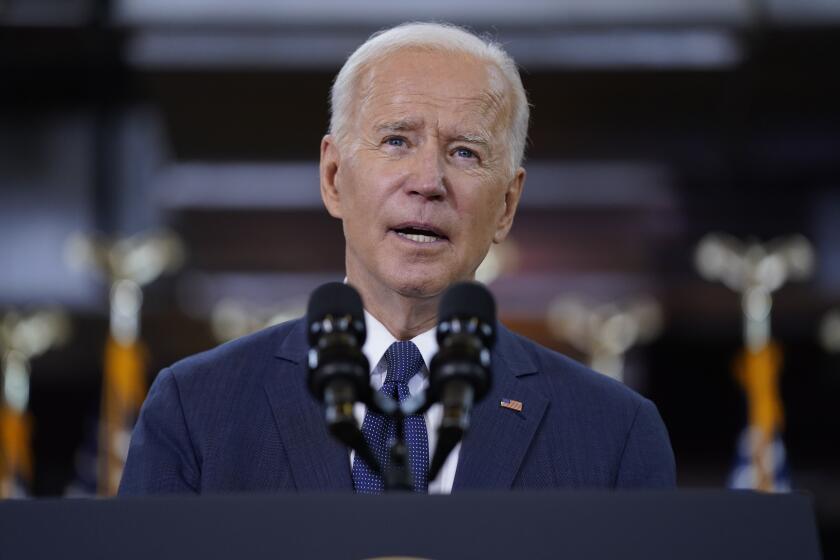Editorial: Arizona’s attorney general wants to finish his term with a rush of executions

It’s been seven years since the state of Arizona last executed someone convicted of murder, and given how poorly that went (it took Joseph Wood two gasping hours to die), it’s understandable that a judge ordered state officials to unplug the execution assembly line for a bit.
But after spending several years fighting with inmates and anti-death-penalty advocates in court, state Atty. Gen. Mark Brnovich seems to finally be on the verge of revving the machinery back up to execute 21 of the state’s 115 condemned inmates.
The state should use data on health outcomes — not just services — to make insurers work harder to end the health disparities between Medi-Cal’s largely Black and Latino enrollees and everyone else.
Brnovich notified the state supreme court last week that he intends to start with death warrants for two men after earlier announcing that “we’re gonna do everything we can, and do everything I can, to ensure that every 21 of those individuals [who] have exhausted their appeals ends up getting the death penalty before I leave office.”
Note that last phrase: Before he leaves office (Brnovich is termed out as of January 2023). So these execution dates will be dictated by the interests of politics, not the interests of justice.
In that regard, Brnovich, who is being discussed as a 2022 gubernatorial candidate, is taking a page from the playbook of former U.S. Atty. Gen. William Barr, who rushed to execute 13 people near the end of the Trump administration after a federal hiatus of nearly two decades.
In both cases the attorneys general provide yet more exhibits in a law library already full of them that capital punishment, as applied, is rarely about justice. Often arbitrary and capricious, it is also political, and often pursued to display a politician’s “tough in crime” credentials. Or in Brnovich’s admission, an apparent desire to send himself off on what he sees as a high note.
By proposing programs that treat crime as a public health crisis, Biden’s plan could be the best way to fix systems that lead to poverty and violence.
Not that the conservative U.S. Supreme Court is likely to pay much heed to such arguments, especially given Chief Justice John G. Roberts Jr.’s views on the issue. Writing in Baze vs. Rees, a 2008 case upholding the constitutionality of Kentucky’s lethal-injection protocol, Roberts noted that the court had previously held capital punishment to be constitutional. “It therefore necessarily follows,” Roberts wrote, “that there must be a means of carrying it out.” No, it doesn’t.
The U.S. is a global outlier among developed nations in still following this barbaric practice, even as fewer and fewer Americans support it. The death penalty is supposed to be reserved for “the worst of the worst,” but it falls disproportionately on the poor, on people of color and on those with mental illness or other incapacities. And of late it seems to befall people out of not a penological interest, but a political one.
So maybe the nation should thank Barr and Brnovic for spotlighting this inherent failing of capital punishment. We can’t get it right, morally, legally or operationally, judging by the history of botched executions and erroneous convictions. It is a politician’s plaything, not a means of achieving justice.
More to Read
A cure for the common opinion
Get thought-provoking perspectives with our weekly newsletter.
You may occasionally receive promotional content from the Los Angeles Times.











